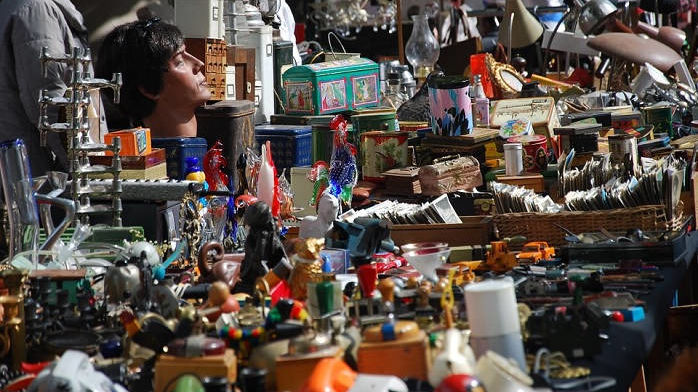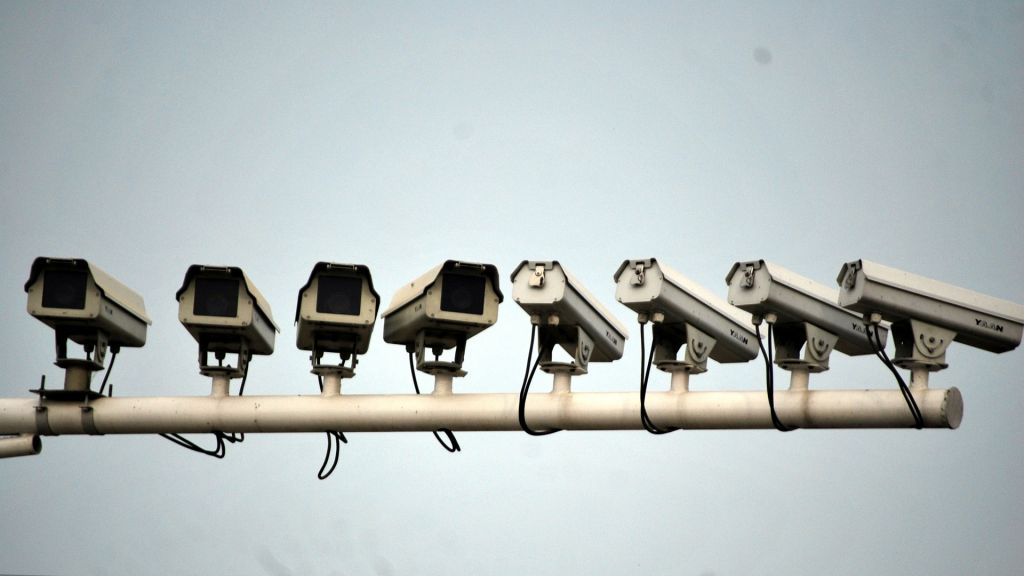The Consequences of Fintech and a Cashless Society
Could we live in a cashless society? Money is one of the most important inventions in the history of mankind. It provided us with a way to turn economic value into an abstract concept. Which solved the problem of figuring out how many chickens a cow was worth and other similar barter-based head-scratchers.
For a while, we used precious metals such as gold and silver as money. These were relatively rare, hard to get and sought-after for their beauty. Since a substance such as gold is easily divisible into different quantities, you could use it as a proxy to trade. That’s something you can’t do with a cow, at least not while you want it to be, well, alive.
Then we moved to a world where money itself was just cheap paper and metal. It’s a token of value. The cash that everyone reading this probably grew up with. If you grew up with gold doubloons, you’re a ghost pirate, but you’ll probably find this discussion interesting anyway.
Now, thanks to “Fintech” we’re heading towards a world where physical cash may be a thing of the past. What does that mean? Let’s look at some potential consequences.
The Informal Sector Will Suffer in a Cashless Society
Economies are complex and diverse. Most importantly, it’s impossible to have total oversight or control over an economy. Even the most controlled economies in the world have significant amounts of trade that happen outside of any sort of formal financial system.
It can be something as simple as buying your friend’s old game console from them for cash. Only the two of you know about it. It’s an informal trade. Governments, of course, would like to have a slice of these transactions. So that they can be taxed. Cash transactions have long been a way for people to trade goods and services without paying taxes on those transactions.
With no cash, your only options would be to barter. Which is still pretty inconvenient. There are already apps and services that let people make small financial transactions with people they know directly. Think of apps like Venmo to see what I’m talking about. Now, imagine that when you kick in some money to pay your half of a dinner bell, that’s digitally recorded. They know who you gave the money to, what you paid for and how much it was. In some countries, such as India, informal trading is massive and a source of livelihood for millions. So the eventual elimination of physical cash could have a huge impact.
It Comes with Privacy Problems
I already alluded to this in the above paragraph, but one of the greatest advantages of physical cash is anonymity. There are some things we’d rather not have reflected on our bank statement. Which doesn’t mean those things are illegal. It could be personal, private or sensitive in various ways.
In a cashless world, any hope of true privacy or anonymity is gone. There’s no telling if this will be a net benefit for us or not, but if you care about privacy then a world without physical cash isn’t exactly a utopia.
Increased Government Control
There’s a logical connection between being omniscient and omnipotent. If you know everything, then you can achieve just about anything. If world governments had perfect insight into the flow of money then they could exert a level of control which might be considered totalitarian.
For one thing, the state is always desperate for more resources, with taxes being the main source. There are plenty of things that could be taxed legally, which the state doesn’t bother with since it would be more trouble than its worth. However, if all transactions are digital and can be easily analyzed, then the state could tax everything from the stuff you sell at a garage sale to the $10 you get from your grandma at Christmas. If it’s profitable to tax something, you can bet the state will tax it.
That’s just the main course. With total insight into everyone’s finances, it becomes possible to get near-perfect insight into other aspects of their lives. Which makes a frightening level of control over individuals possible.
It Makes Banking Institutions Mandatory
In Fintech circles, there’s a group of people who are referred to as the “unbanked” or “underbanked”. These are people who, for various reasons, don’t have an adequate level of access to banking services.
More often than not, this is because they simply don’t earn enough money to make the cost of banking viable. A lot of hot Fintech is based on getting formal banking services into the hands of these groups.
While there are a million good reasons to want these groups of people to have banking access, removing cash from a society essentially means you have no choice but to be a banked individual. For most people, this might not seem like a bad thing, but at the very least there is a principle of freedom at stake here. In more practical terms it also means that the cost of banking something that even the poorest among us will not be able to avoid. Hopefully, further reductions in the cost of banking will offset this.
No Way to Avoid Negative Interest
One curious consequence of having no choice about using formal banking services is the idea of negative interest rates.
In general, banks will pay you interest on your savings with interest-bearing accounts. However, if the reserve bank that sets base interest rates should set a negative interest rate, it would mean banks must siphon cash from your savings to pay for it.
In a world with cash, you have the option of withdrawing your deposit and weathering such a storm. In a totally banked cashless world, you’ll be powerless to do anything but watch your money be drained.
Perhaps the only way to save your savings would be to convert it to a commodity such as gold, but of course, you’ll be paying taxes on that purchases as well, so there really is no escape.
Marginalized People May Suffer
This point ties in with the elimination of the informal sector. There are people in professions (such as sex workers) or people in poverty (such as the homeless) who absolutely rely on cash to make a living. Our reduced use of cash is already having an impact on the homeless who live off cash handouts. These days a homeless person needs a smartphone with Venmo or some other small-transaction platform to have a good chance of getting something from a good Samaritan. it’s also worth remembering that these platforms aren’t free. No one takes a cut when you give a dollar to a person so they can buy food, but if you have to use a Fintech product to do it, someone is making money from the transaction.
New Business Opportunities
Of course, whenever a big societal change happens, there are also new opportunities to do something interesting with it. Services such as Uber and Airbnb are amazing examples of how the digital nature of cash can be used to build entire business models. The gig economy and the dynamic and efficient sharing of resources would not be possible in a cash-based system. Speed and automation of digital money are revolutionary in this sense. It’s a major contributor to the changing world of work as well. With new jobs becoming possible all thanks to the qualitative and quantitative transformation that money undergoes once it's completely digital.
Shifts in Crime Patterns in a Cashless Society
Most crimes are economic crimes. Money and property are a major cause of criminal activity. Cash is obviously a major part of this. Cash can be spent by whoever has it in hand. This is why banks use expensive solutions such as exploding die packs to mark cash that gets stolen. The hope is that the money can be traced or that it becomes unusable.
In a cashless society, many traditional opportunities for crime become impractical. There’s little point in robbing a store when you know there’s no cash in the register or even a register. These days robbers are more likely to pocket a few iPhones rather than bothering to get cash. Since they are worth much more than the same volume of medium or small bills.
Will a cashless society lead to an elimination of crime? Clearly not. As long as we live in a scarcity-based economy where some people are driven by greed or desperation, there will be theft.
I do however foresee a change in the general types of crimes we’ll see. After all, you need a sophisticated, tech-savvy crook to defeat the complex security of banking systems. There will probably be an upsurge in high-tech fraud and scam operations. Social engineering may be another way to get at the money. It’s already quite profitable for a variety of cybercriminals, but in a cashless society, cybercrime may very well be the only sort of crime that still pays.
Better Welfare Systems in a Cashless Society
In many countries, welfare payments are not available in cash. Instead, recipients have a card, usually only accepted at select stores. In some cases, the government can control what sort of products are bought, ensuring that welfare recipients buy essential items first or in adequate amounts. The same goes for students on bursaries, who may only be able to buy designated items, such as textbooks.
From one point of view, this is an infringement on freedom of will. On the other hand, going cashless when it comes to national welfare systems can ensure that the money is used responsibly and fairly. It also means plenty of data on spending patterns can be easily collected and analyzed. So that future planning Is that much easier to do. It also cuts down on the cost of administration and disbursement. So overall I’d say the cashless movement is probably good for welfare recipients on balance.
Digital Cash Could be the Answer
If cash is going the way of the dodo, does that mean we have to say goodbye to the advantages that paper money provides? The answer may very well be “no” thanks to the invention of true digital cash.
Cryptocurrencies such as Bitcoin share many of the attributes. The currency isn’t held in a centrally-controlled institution. While every transaction is verified, that only relates to the validity of the coin supply and where coins are held. No one knows who bought what from whom. Well, there are was to sometimes correlate third-party data with blockchain transactions, but that’s true of cash as well.
While it hasn’t happened yet, cryptocurrencies may one day be the safety net against the total control of a cashless society with a government that exerts arbitrary control over its money supply.
What if the World Went to a Crypto Cashless Society?
In science fiction novels, there’s often a universal currency that spans planets or nations. Credits, galactic credits or whatever you want to call them might actually have found realization in the form of cryptocurrency.
While governments have the power to legally ban alternative currencies as a way to trade, they don’t really have any power to enforce it. If people want to barter or use a parallel currency, they’ll just go ahead and do it. Whether that currency is postage stamps, trading cards, seashells or cryptocurrency. In the case of cryptocurrency its especially hard to control, since there is no center to attack and the blockchain can exist far outside of that government’s jurisdiction.
So let us imagine for a moment that we live in a world where we have global digital cash, which has all the advantages of cashless speed and ease but doesn’t need central infrastructure to work. This would create a massive global economy of free trade. While it’s still possible to stop physical trade across borders, we are moving into a world where most of the value comes from knowledge trade. Where people can print contraband with 3D printers, using plans taken from BitTorrent and paid for in Bitcoin. It’s a weird and exciting future and seeing how the powers that be navigate the unique challenges of this decentralized cashless world is sure to be fascinating.
What do you think a cashless society will be like? Let us know down below in the comments. Lastly, we’d like to ask you to share this article online. And don’t forget that you can follow TechNadu on Facebook and Twitter. Thanks!






